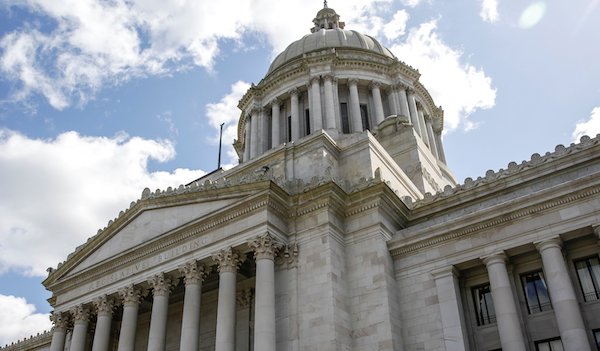
PROSPECT HEIGHTS — After the Washington state House of Representatives failed to pass an amendment to a bill that would require clergy to violate the seal of confession, Bishop Thomas Daly of Spokane reminded legislators that throughout history “all” such attempts by “kings, queens, dictators, potentates, and legislators” have failed, and that even if it passed, clergy wouldn’t capitulate.
“I want to assure you that your shepherds, bishop and priests, are committed to keeping the seal of confession — even to the point of going to jail,” Bishop Daly said in an April 19 statement. “The Sacrament of Penance is sacred and will remain that way in the Diocese of Spokane.”
In March, the Washington Senate passed the bill, SB 5280, that would make clergy mandated reporters, or people required by law to report suspected instances of child abuse or neglect. The bill, which passed unanimously, included an exemption for clergy-penitent privilege.
The bill then went to the Washington House for a vote. However, the House added an amendment to the Senate version that removed the clergy-penitent exemption. That version of the bill passed the House on April 11. The vote was 75-20.
The House vote sent the bill back to the Senate to approve the amendment, which it rejected. The House now has until the end of the week, when the legislative session ends, to re-vote.
The House has a few options: It could remove the amendment and pass the bill as it was written by the Senate; remove the amendment, but pass the bill with new conditions that the Senate would have then have to vote on; or keep the amendment and ask the Senate to reconsider.
Archbishop Paul Etienne of Seattle said the Washington bishops support the Senate version of the bill that has the exemption for clergy-penitent privilege.
“The Catholic Church already deems priests as mandatory reporters. The bishops support this aspect of the bill, with one exception — when individuals are confessing their sins during the sacrament of reconciliation,” Etienne said in an April 19 statement.
“The confidentiality of the sacrament must be preserved so that individuals are able to freely unburden their souls,” Etienne continued. “This religious liberty must be protected, as it has been historically in our country.”
The debate over clergy-penitent privilege is nothing new. Legislation that would force clergy to violate the seal of confession has come up in at least a dozen states since the turn of the century, most recently in Delaware. All of those attempts have failed.
Those in favor of such legislation argue it’s needed to further protect children. Conversely, opponents argue forcing clergy to violate the seal of confession violates religious freedom. The Catechism of the Catholic Church states the seal must never be violated.
Etienne said removing the exemption would be an “unconstitutional violation of civil liberties.”
“It would violate the First Amendment’s Free Exercise clause because it would threaten priests with legal sanctions unless they violate their religious vows,” Etienne explained. “The bill attempts to interfere with our Catholic worship and unfairly targets religious liberty, both of which are bad precedents.”
Washington Democratic Senator Noel Frame said it’s about child protection, saying “they need to know the adults in their life will do something.”
Bishop Daly and Archbishop Etienne both acknowledged the Church’s history of clergy sex, but highlighted the reforms that have been implemented since the U.S. Catholic Church established the Charter for the Protection of Children and Young People in 2002, and its zero-tolerance policy.
“Our goal is to do everything within our power to keep your children safe while we attempt to lead them to know and love Jesus Christ who commanded, ‘let the children come to me and do not hinder them,” Bishop Daly said.
